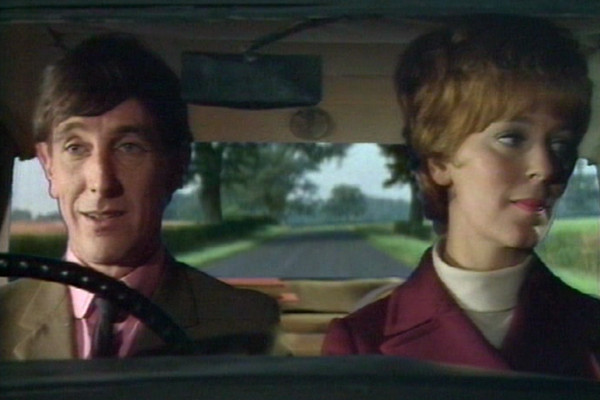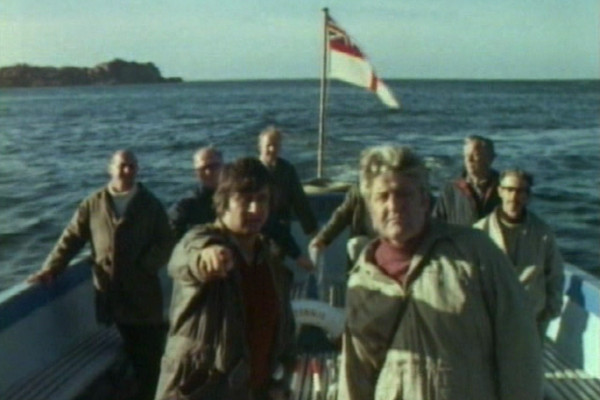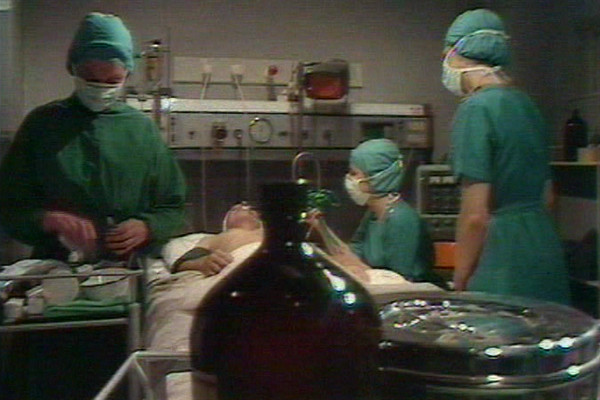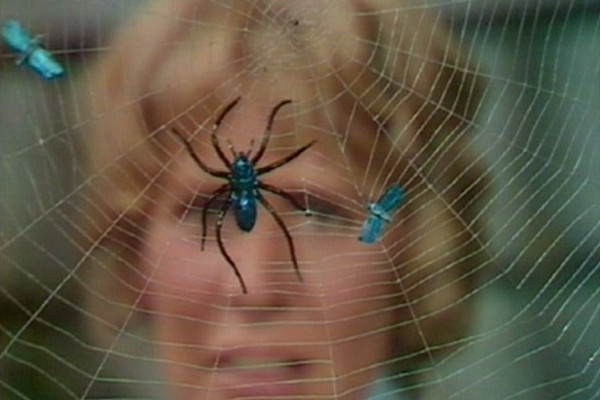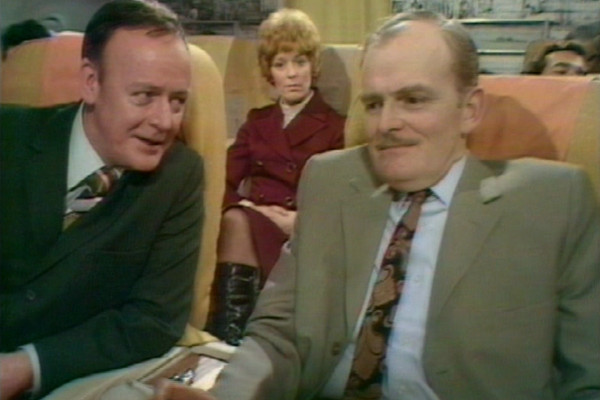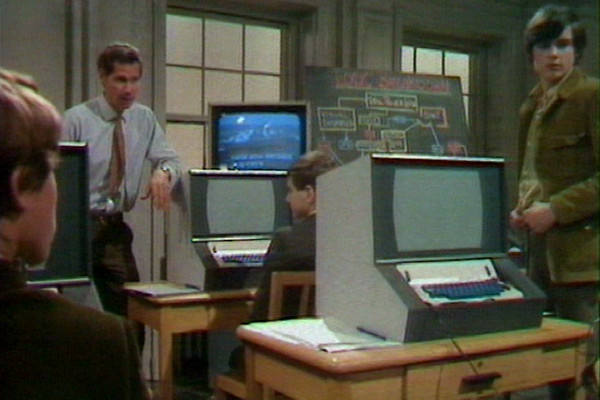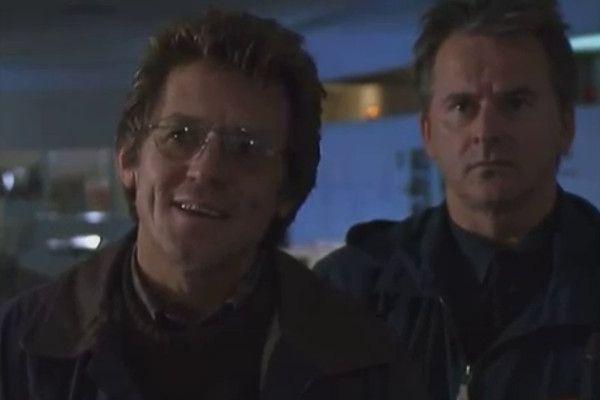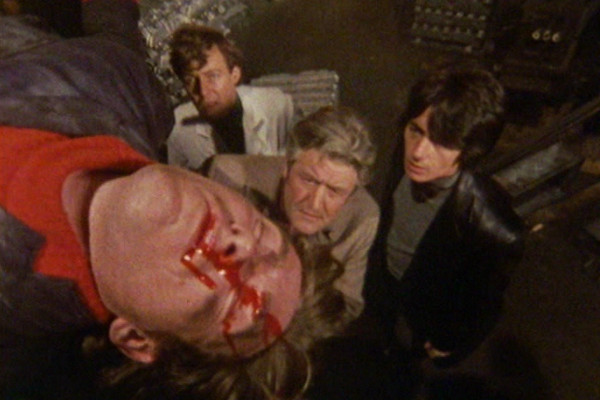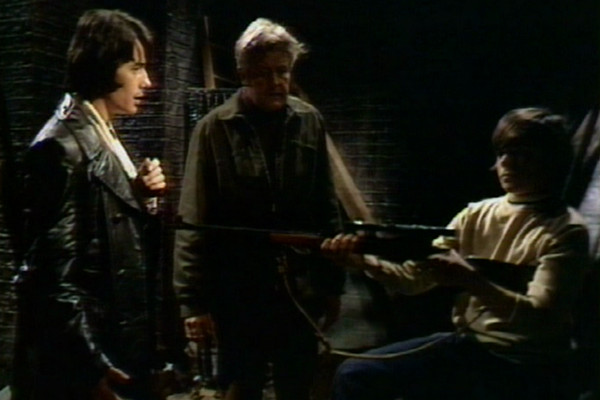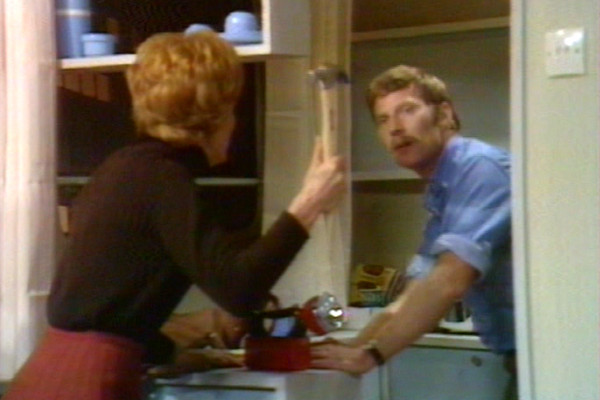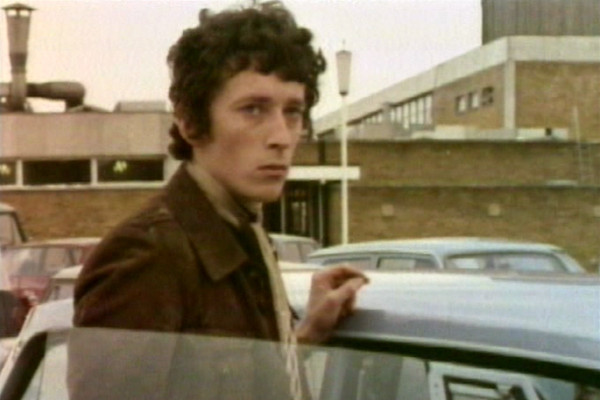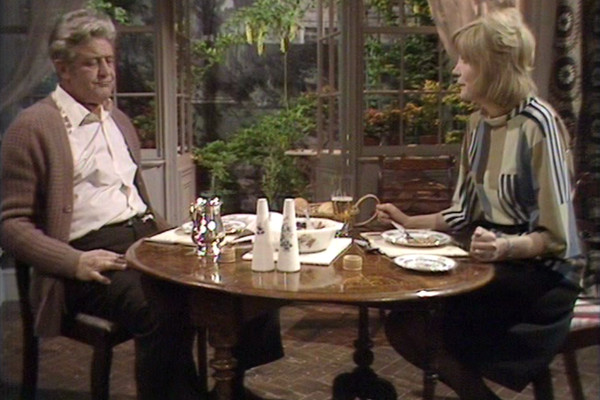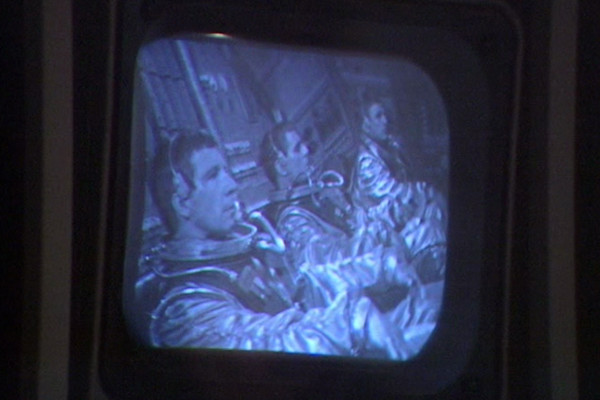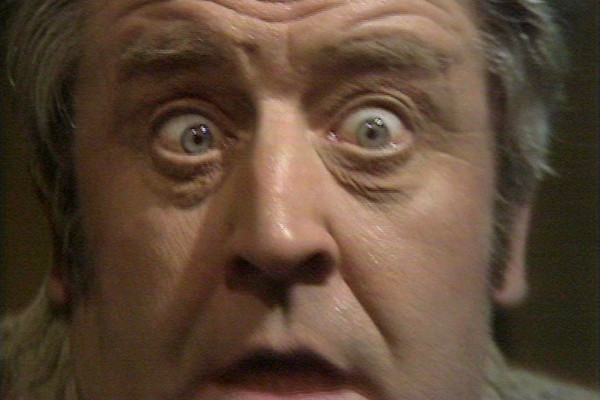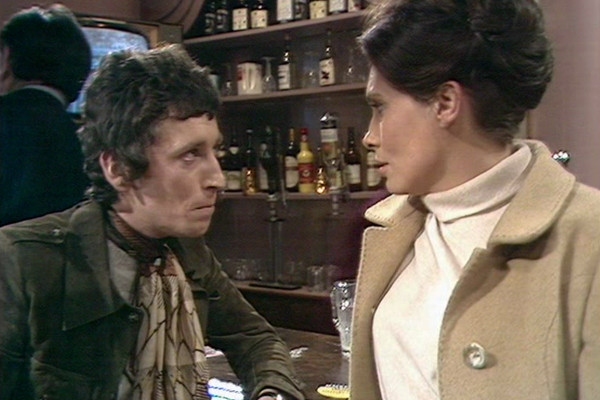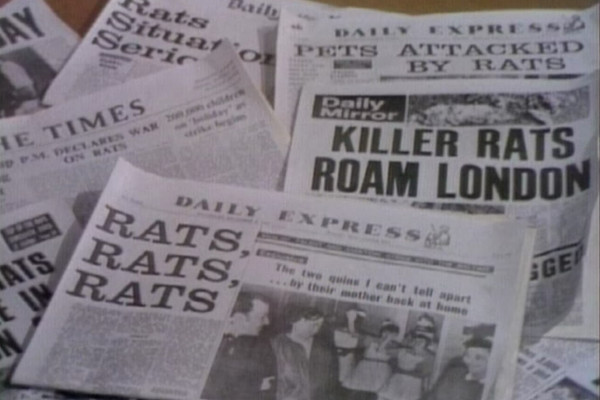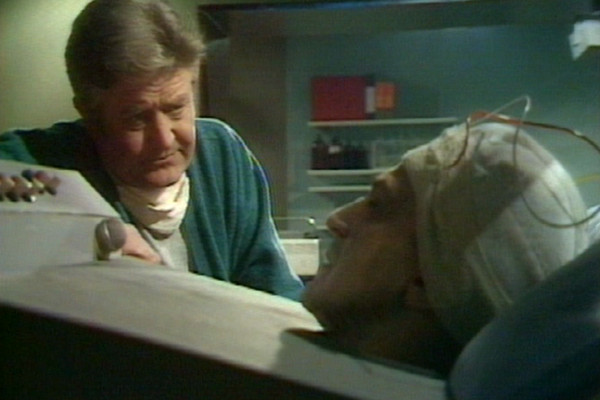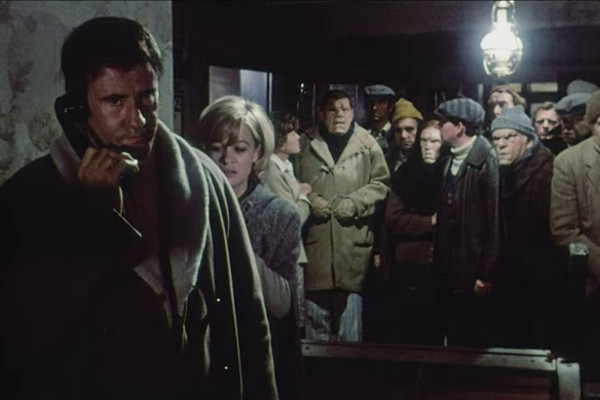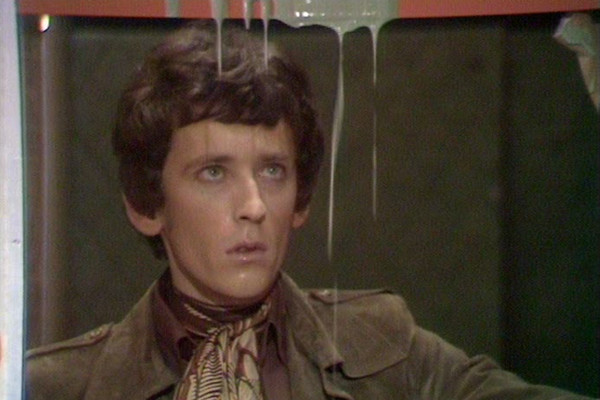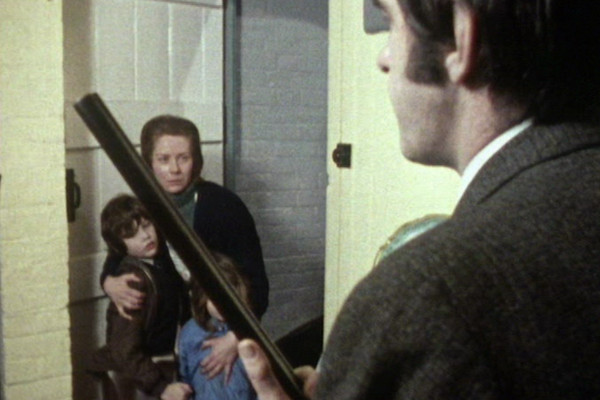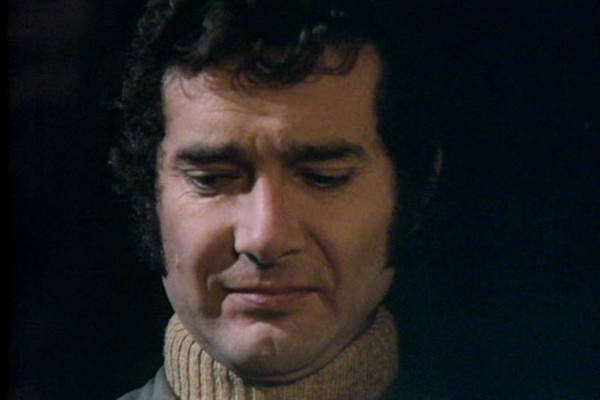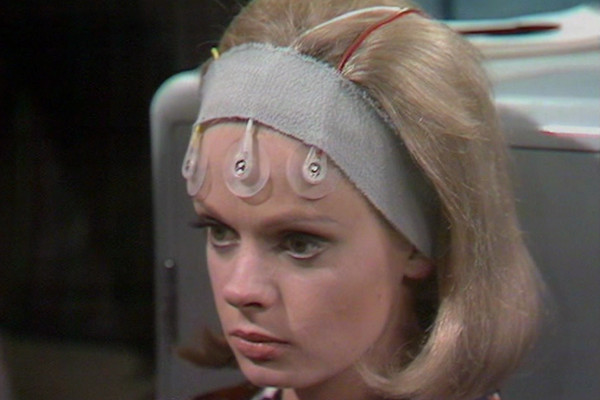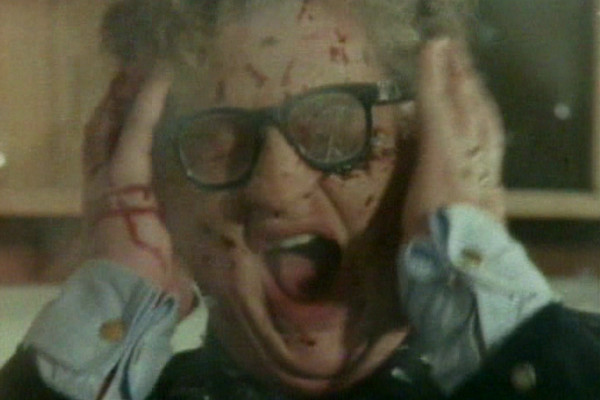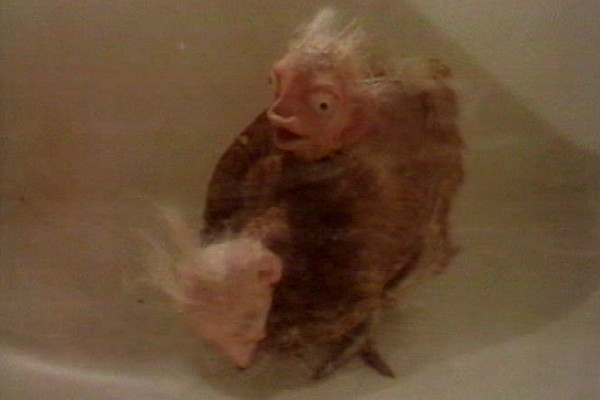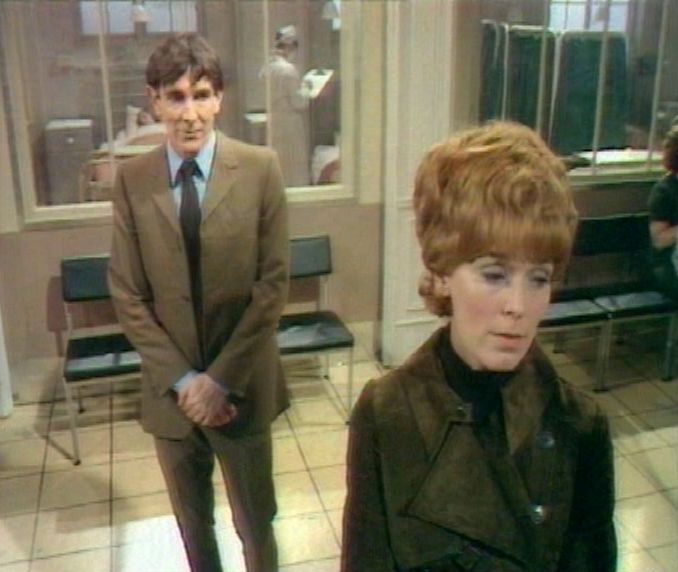3 By The Pricking Of
My Thumbs... (2.5)
On a purely objective level, there's no real justification for this episode reaching so high in this ranking. It's far from the best episode in terms of writing, acting or concept. However, what makes it rank so highly is that it's an unintentional comic tour-de-force..
Throughout the 70s "Public Information Films" would be shown on television, warning children of various dangers. Often, because of the stagy acting of the children involved, combined with the melodramatic depiction of dangers, these would produce laughter as opposed to fear. While some entries like
Lonely Water were genuinely eerie, others like
Play Safe: Frisbee would be more perversely comic, which was far from the original intention. The opening to this episode, featuring a child with smashed glasses, blown up in a science experiment, screaming with exaggerated intent, mines a similar layer of unintentional black comedy.
It doesn't end there, as Bernard Hepton plays the Yorkshire-accented father of one of the boys involved, a
Pythonesque creation who slams down phones with a "bastard!" and utters inexplicable lines like "if schools are going to bring in psychological and biological big brothers, to sit in genetic judgement on our children..." Hepton's incessant intensity in the face of such a ludicrous script is hilarious, as is the sight of a 20-year-old Sally Thomsett playing a 13-year-old schoolgirl in pigtails.
As the central character, then Barry Stokes lacks true gravitas as the boy who finds he has an extra Y chromosome. In another episode this lack of true acting depth would sink it, but here his slightly wooden cries of "I'm too tall! Too tall! I want to die!" add further to the amusement within. It all ends with another sermonising speech from Quist, while Olaf Pooley (who has contrivedly been conducting Y chromosome experiments at the exact same time as the dad seeks Doomwatch's help) looks on in horror. On a purely objective level, this may well be the worst episode of Doomwatch ever made. Yet as an unintentional comedy, it's arguably the best.
2 You Killed
Toby Wren (2.1)
Genuine drama is mined from the series here, as the aftermath of Toby Wren's death is explored. Although the cataclysmic
Survival Code no longer exists in the BBC archives, the final moments were included as part of the pre-credits sequence here. Many series, when continuing after a lead character has departed, tend to bring in proxy replacements (or even poxy replacements) that fulfil the same basic plot functions and dynamics within the show. While newcomer Geoff Hardcastle is the new "young man" of the show, this is subverted here as Ridge is disgusted by Quist's attempt to replace Toby.
John Nolan made a promising start as Hardcastle, though, despite appearing in nine more episodes, he became very much a secondary character, given little to do in deference to the others. A talented actor who appeared in other programmes covered on this site (
The Prisoner and
The Sweeney), when he was approaching his sixties he played a role in a "no budget" film,
Following, as a favour to his young nephew who wanted to become a director. His nephew, Christopher, went on to repay the favour when he got more successful in the industry, giving John roles in some larger movies:
Batman Begins,
Dunkirk and
The Dark Knight Rises.
Also new to the series here is Vivien Sherrard as replacement secretary Barbara Mason. While she would appear in twenty episodes, it was a far less prominent role than Wendy Hall's, which did at least mean she got to avoid
most of Ridge's sexual harassment. Then there's the first appearance of Dr. Anne Tarrant, who Quist sees for counselling, and later asks for her number. While this subplot would appear to go unreferenced, the thread was picked up with season three, where, as we've seen, she was brought back as his wife.
Despite its status here as the greatest of the existing broadcast episodes, You Killed Toby Wren again suffers from the vast gulf between budget and ideas. John Ridge investigates human-animal hybrid experimentation, the implications of which are horrific. Sadly, despite Oates' most dedicated performance, and the descriptive dialogue, what we see is what is unfortunately captured above: a chicken with two rubber heads stuck on it. With animal welfare standards not being as strict at the time, the chicken is clearly distressed and trying to shake off its replacement "head", though far more docile is the dog in the next cage wearing a bald cap. Unfortunately today, this is the legacy of Doomwatch in some of its best instalments... big ideas, poor execution. What should produce horror instead produces hilarity, and ensures that the programme's only appearances in nostalgia "clips" shows are there purely for easy derision. It's a great shame, because the series deserved better.
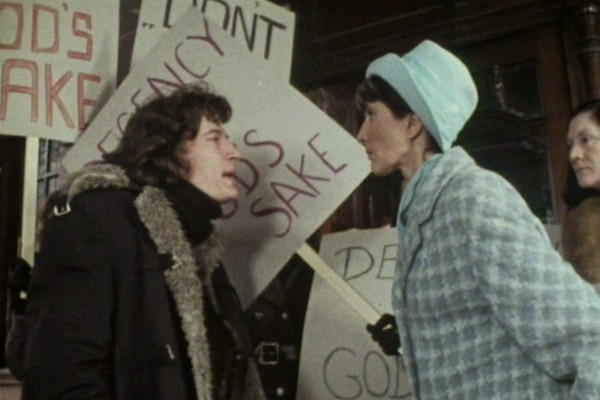
1 Sex And Violence
(Unbroadcast)
Sex And Violence asks the question... what if Doomwatch wasn't a drama series, but a scathing satire of modern societal mores?
The Goodies had beaten them to it by seven months, with the episode Gender Education (also possessing the alternate title of "Sex And Violence") casting Beryl Reid as the puritanical Mrs. Desiree Carthorse. This more than worthy spiritual follow-up has June Brown as "Mrs. Catchpole", while Noel Dyson plays moral campaigner Angela Cressy, giving the instalment two Mary Whitehouse analogues for the price of one. Adding to this - a parody of then-current investigations into pornography in British society - are substitutes for the real-life participants, including Lord Longford and Cliff Richard. The script certainly isn't above some sillier jokes, such as Christopher Chittell's Cliff-mimicking pop star going by the name of "Dick Burns".
It's a brilliantly savage satire by one-time writer Stuart Douglass, including the observation by a right-wing extremist that "If you have created a society in which a naked couple cavorting on a public stage is more shocking than a million on the dole, a hundred thousand homeless, or half a million dead in Pakistan, don't blame me for taking advantage!" Amusingly "soft porn" footage had to be specially filmed for the serial, as Soho dealers morally objected to such material being broadcast on BBC1. Far more serious is the use of actual execution footage from Nigeria, which still shocks today.
A huge, legitimate criticism of the story is that it's barely a Doomwatch episode at all. The lead is Quist's wife, Dr. Anne Tarrant, while Quist does little more than watch the various debates take place. The episode opens with Quist insisting that "it's not my area... of investigation" and ends with him asking "What's Doomwatch doing in this mess? [...] I still can't get to terms with my brief." As a piece of television it's compelling, daring and has a lot to say. As a piece of the series Doomwatch it's far less worthwhile.
Ironically, the serial was pulled from broadcast due to its controversial subject matter, where it would have been aired fifth in the third season. It was finally released onto DVD in April 2016, though its inclusion still only brings the final season up to twelve episodes... the planned season closer, "I Never Promised You A Rose Garden" AKA "The Devil's Demolition" by Wolf Rilla, was scrapped before it was made due to undisclosed reasons. Of the thirteen directors who worked on the programme, Darrol Blake was the most prolific, directing half a dozen, including Sex And Violence. The scrapped episode was due to be his seventh.
